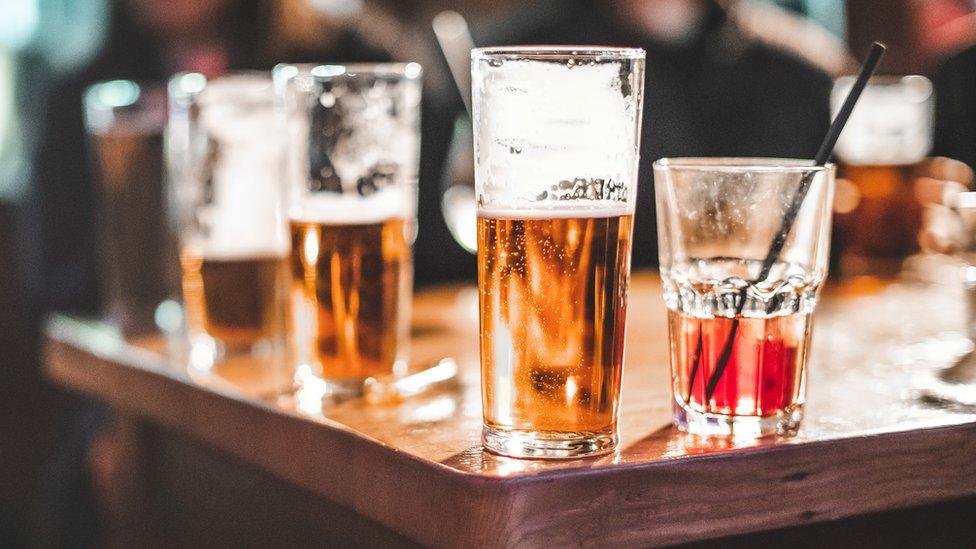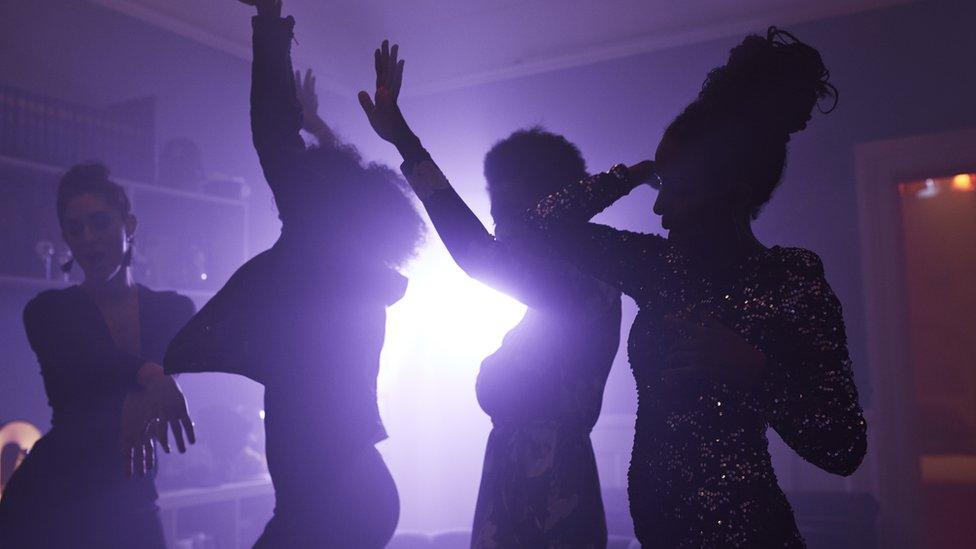Londonderry drink-spiking incidents prompt police appeal
- Published

Police in Londonderry are appealing for anyone who believes they had their drink spiked while out in the city centre last weekend to contact them.
The police said they responded to one incident in Foyle street last Saturday.
One teenage girl, who believed that her drinks had been spiked, was taken to hospital in an ambulance, police said.
"We are aware of a related post on social media, which states that several individuals had their drinks spiked in the city," Insp McManus has said.
"Drink spiking can, of course, result in the most serious of harm," the senior officer added.
The SDLP's Sinead McLaughlin told BBC Radio Foyle there were "allegations that drink-spiking has occurred in at least two different bars in Derry".
Derry drink-spike warning: 'We shouldn't have to be scared'
Ms McLaughlin has raised the issue around drink-spiking with Justice Minister Naomi Long and said she will also be discussing the matter with the Police Service of Northern Ireland (PSNI) on Friday.
"As a mother of two young women it's always something that I have been very afraid of," Ms McLaughlin said.
"I tell my girls be aware when they're out in the evening, but it's not fair because you're putting the onus on your daughters," she added.
The Foyle assembly member said it is essential that people "feel looked after and protected" when they are out enjoying themselves in the city centre.
"We are asking club owners, bar owners and those operating within the evening economy to be very vigilant," Ms McLaughlin said.
The police are urging anyone who believes they have been a victim of drink spiking to report it to the police.

How to help a friend who you think has had their drink spiked
Stay with them and keep talking to them
Call an ambulance if their condition deteriorates
Don't let them go home on their own
Don't let them leave the venue with someone you don't know or trust
If possible, try to prevent them drinking more alcohol as this could lead to more serious problems
Urine and blood tests carried out in the first 24 to 72 hours are most likely to detect drug traces

- Published7 January 2020

- Published15 October 2021
